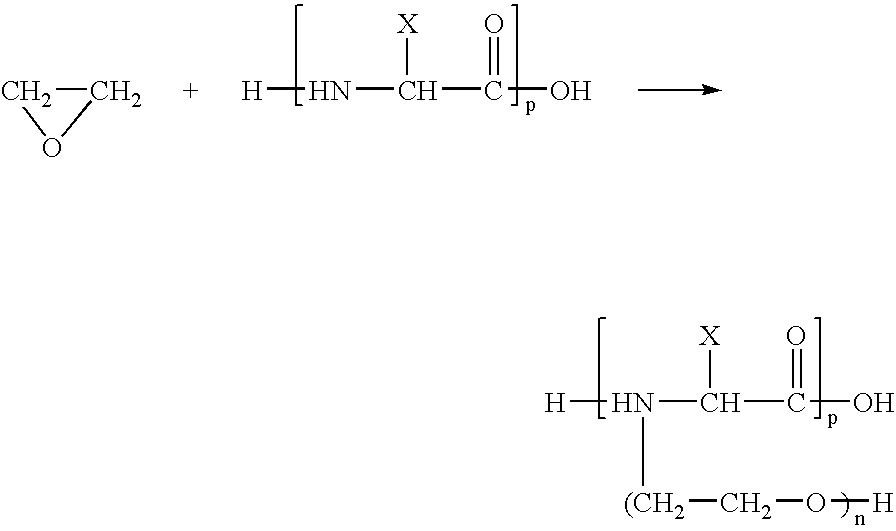Coatings containing polycationic peptides for cardiovascular therapy
a technology of peptides and coatings, applied in the field of medical devices, can solve the problems of intimal flaps or torn arterial linings, affecting the treatment effect of patients, affecting the treatment effect, etc., and achieve the effect of increasing the population of peptides
- Summary
- Abstract
- Description
- Claims
- Application Information
AI Technical Summary
Benefits of technology
Problems solved by technology
Method used
Image
Examples
example 1
[0049]A first composition can be prepared by mixing the following components:
[0050](a) between about 1.0 mass % and about 15 mass %, for example, about 2.0 mass % of EVAL; and
[0051](b) the balance, DMAC solvent.
[0052]The first composition can be applied onto the surface of a bare 13 mm TETRA stent (available from Guidant Corporation) by spraying and dried to form a primer layer. A spray coater can be used, having a 0.014 fan nozzle maintained at about 60° C. with a feed pressure of about 0.2 atm (about 3 psi) and an atomization pressure of about 1.3 atm (about 20 psi). About 70 μg of the wet coating can be applied. The primer can be baked at about 140° C. for about 2 hours, yielding a dry primer layer.
[0053]A second composition can be prepared by mixing the following components:
[0054](c) between about 1.0 mass % and about 15 mass %, for example, about 1.7 mass % of EVAL;
[0055](d) between about 0.05 mass % and about 2.0 mass %, for example, about 0.7 mass % of R7; and
[0056](e) the ba...
example 2
[0072]A coating comprising a primer layer and a drug-polymer layer can be applied onto a stent, as described in steps (a) through (h) of Example 1. The stent can be placed in a humidifying chamber, at the temperature of about 50° C. and a relative humidity of about 100%, for about 24 hours. A topcoat composition can be prepared by mixing the following components:
[0073](a) between about 1.0 mass % and about 15 mass %, for example, about 2.0 mass % of PBMA; and
[0074](b) the balance, a mixture of solvents, xylene, FLUX REMOVER AMS, and acetone in a ratio of about 25:19:5 by mass.
[0075]The stent can be removed from the humidifying chamber and dried. The topcoat composition can then be applied onto the drug-polymer layer, to form a topcoat layer, using the same spraying technique and equipment as described in Example 1. About 100 μg of the wet coating can be applied, followed by drying, e.g., by baking as described above.
example 3
[0076]A stent coating can be made as described in Example 1, except instead of R7, poly(L-arginine) having weight-average molecular weight of about 5,000 is used. For this kind of PArg, p=29. The coated stent can be then subjected to an electronic beam having an energy of about 2.5 MRad for about 1 second.
PUM
| Property | Measurement | Unit |
|---|---|---|
| humidity | aaaaa | aaaaa |
| temperature | aaaaa | aaaaa |
| temperature | aaaaa | aaaaa |
Abstract
Description
Claims
Application Information
 Login to View More
Login to View More - R&D
- Intellectual Property
- Life Sciences
- Materials
- Tech Scout
- Unparalleled Data Quality
- Higher Quality Content
- 60% Fewer Hallucinations
Browse by: Latest US Patents, China's latest patents, Technical Efficacy Thesaurus, Application Domain, Technology Topic, Popular Technical Reports.
© 2025 PatSnap. All rights reserved.Legal|Privacy policy|Modern Slavery Act Transparency Statement|Sitemap|About US| Contact US: help@patsnap.com

